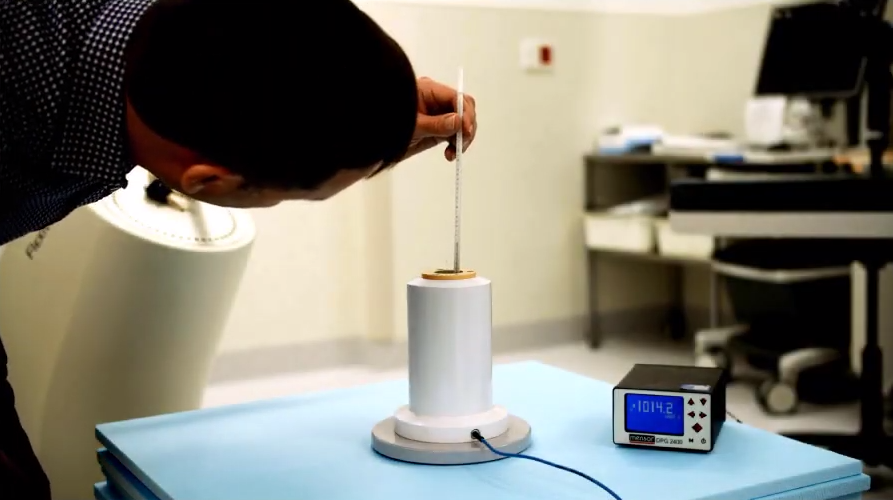To support the work of clinical medical physicists, the IAEA is committed to developing and disseminating best practices to ensure that procedures under the responsibility of medical physicists, such as quality control and acceptance, are performed with the utmost safety and quality, for the ultimate benefit of patients. For this reason, the IAEA developed a video tutorial demonstrating and explaining the procedure of accepting a new source in high-dose rate (HDR) brachytherapy.
Acceptance of a New Source in HDR Brachytherapy
E-learning CourseThe brief video tutorial complements the IAEA document “Calibration of Photon and Beta Ray Sources Used in Brachytherapy” and touches upon:
- well-type chamber constancy check
- source positioning accuracy check
- measurement of air kerma strength
- timer accuracy check
- updating planning and treatment systems
- radiation safety and security
The tutorial is intended to be used by clinically qualified medical physicists and presupposes underlying knowledge in the field of brachytherapy. IAEA publications and content relevant to brachytherapy can be found on a dedicated webpage.
Acknowledgement
The production of this on-line seminar was supported by Belgium, through the Peaceful Uses Initiative (PUI) project: Enhancing education and training programmes in human health through quality assurance in higher education.
Disclaimer
The appearance of names of specific companies or products does not imply any intention to infringe proprietary rights, nor should it be construed as an endorsement or recommendation on the part of the IAEA.
Contributors
This video tutorial was developed by Anna Ralston (St George Hospital, Sydney, Australia). The IAEA Section responsible for this activity is the Section of Dosimetry and Medical Radiation Physics (DMRP) of the Division of Human Health at the IAEA.
Disclaimer
The appearance of names of specific companies or products does not imply any intention to infringe proprietary rights, nor should it be construed as an endorsement or recommendation on the part of the IAEA.
Contributors
This video tutorial was developed by Anna Ralston (St George Hospital, Sydney, Australia). The IAEA Section responsible for this activity is the Section of Dosimetry and Medical Radiation Physics (DMRP) of the Division of Human Health at the IAEA.

